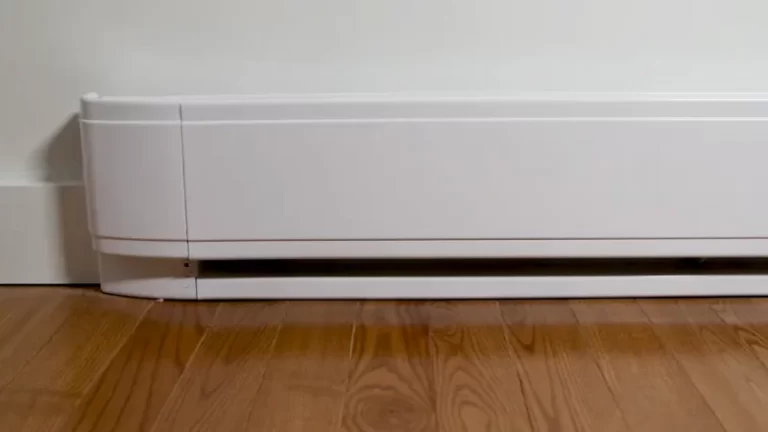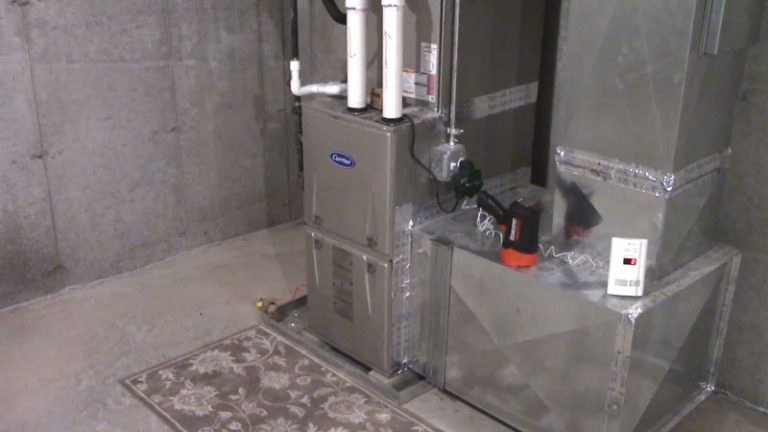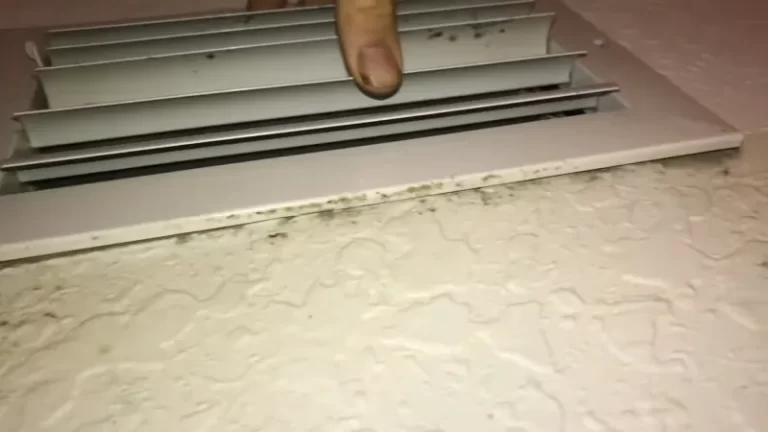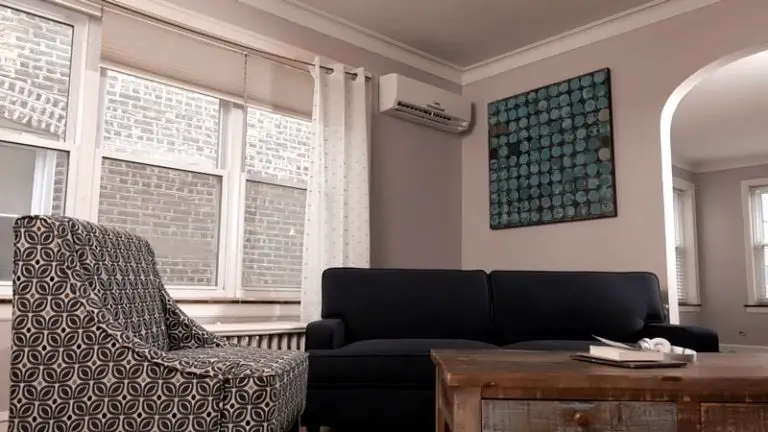Can Solar Panels Power Your Air Conditioner? Find Out Here!
In recent years, there has been a growing interest in renewable energy sources, with solar power leading the way. The idea of harnessing the energy of the sun to power our homes and businesses is not only environmentally friendly but also economically advantageous.
However, it’s not just about using solar power to power our lights and electronics; we can also use it to run our air conditioning units. In this article, we will explore the possibility of using solar panels to run an air conditioner, how it works, and the benefits of doing so.
But before we dive into that, let’s briefly review how solar panels work and why energy efficiency is essential.
You'll Learn About
Can Solar Panels Power Your Air Conditioner?
Yes, it is possible to run an air conditioner using solar panels. The number of solar panels required will depend on the energy required by the air conditioning unit, the size of the solar panels, the level of irradiance in the location, and how many hours the unit will run per day.
In simple terms, solar-powered air conditioning works by using solar panels to collect energy from the sun, which is then converted into power. This power can either go directly to the air conditioner or to a battery where it is stored until the air conditioner needs it.
It’s important to note that running an air conditioner with solar power can be practical and advantageous, as it can help you use your air conditioning without increasing your electricity bill. However, it’s recommended to get a solar air conditioning kit that includes all the necessary components to run the air conditioner with solar power.
The number of solar panels required to run an air conditioner will vary depending on the specific air conditioner’s energy requirements. For example, if you have a 3,000-watt central air conditioner, you’ll need a solar panel capable of delivering at least 3,000 watts.
Most residential solar panels today can produce between 100 watts and 415 watts. Therefore, if you get a 100-watt solar panel, you’ll need 30 of these panels to run your air conditioner.
Overall, solar-powered air conditioning can be an excellent solution for those looking to reduce their energy consumption and costs while still enjoying the comfort of air conditioning.
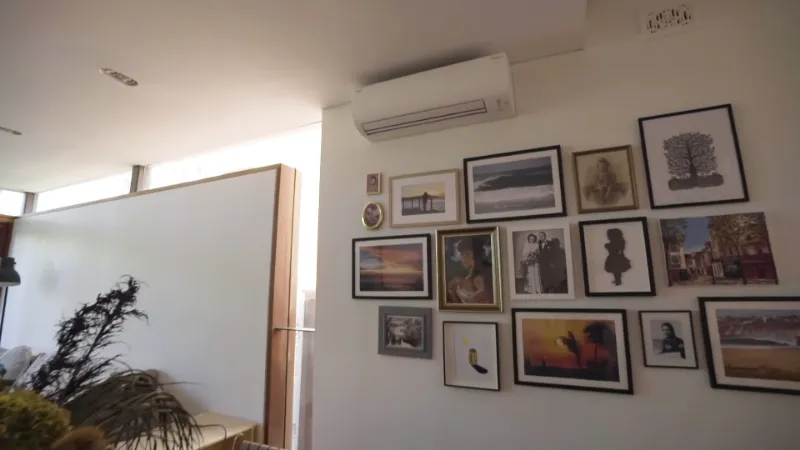
Comparison of Energy Consumption of Air Conditioner Types
| Air Conditioner Type | Energy Consumption (kWh) |
|---|---|
| Central Air | 3500-5000 per month |
| Window Unit | 500-1440 per month |
| Portable Unit | 100-1250 per month |
| Ductless Mini-Split | 300-2000 per month |
Note: The energy consumption values are estimated and can vary based on factors such as room size, location, and temperature settings. It is important to consult with a professional to determine the actual energy consumption of an air conditioning system.
How Solar Panels Achieve the Power?
Solar power has become an increasingly popular option as we continue to explore ways to reduce our carbon footprint and reliance on fossil fuels. While solar panels can power many appliances and devices, a common question that arises is whether they can run an air conditioner.
To answer this question, it is important to first understand how an air conditioner works. An air conditioner works by removing warm air from a room and replacing it with cooler air. This process requires a significant amount of energy, as the air must be cooled and circulated through the room.
Power Requirements
The power requirements of an air conditioner vary depending on the size and type of unit, but in general, they require a significant amount of electricity to function. For example, a central air conditioner may require 3,000 watts or more to run.
Number of Solar Panels
To power an air conditioner with solar panels, the number of panels required will depend on the energy output of each panel and the energy requirements of the air conditioner. Most residential solar panels produce between 100 and 415 watts of energy, which means that if you have a 3,000-watt air conditioner, you would need at least 7-30 solar panels to power it.
Energy Production Depends
However, it is not just about the number of solar panels. The energy produced by solar panels can be intermittent, depending on factors such as weather and the position of the sun. To ensure that the air conditioner can function consistently, even during periods of low solar energy output, a battery backup system is often needed.
This battery system can store excess energy generated by the solar panels during peak sun hours, which can be used to power the air conditioner during periods of low solar energy output.
Have These Things
While it is possible to run an air conditioner with solar panels, it is important to ensure that you have the right number of solar panels and a backup battery system in place to ensure consistent and reliable energy output.
Additionally, choosing an energy-efficient air conditioning unit can also help reduce energy requirements, making it easier to power with solar energy. By combining solar power with energy-efficient appliances, we can make significant strides in reducing our reliance on fossil fuels and creating a more sustainable future.
Factors to Consider When Using Solar Panels to Power an Air Conditioner
When considering using solar panels to power an air conditioner, there are several important factors to take into account.
Location
The location of the solar panels and air conditioner is a critical factor in determining how effective the solar-powered air conditioner will be. Solar panels need to be placed in an area that receives a high amount of direct sunlight.
If the solar panels are in a shaded area, their effectiveness will be limited. Additionally, the location of the air conditioner unit itself is important as it will impact how much heat the system needs to dissipate.
Time of Day and Weather
The time of day and weather conditions will have a direct impact on how well the solar panels will be able to power the air conditioner. On sunny days, the solar panels will be able to produce more energy, whereas on cloudy days or during times of reduced sunlight, the panels will produce less energy. Additionally, the temperature can impact the efficiency of the air conditioner unit.
Air Conditioner Type and Efficiency
The type and efficiency of the air conditioner unit will also play a significant role in determining how many solar panels are required. Generally, a higher efficiency air conditioner will require fewer solar panels than a lower efficiency unit. Additionally, the size of the air conditioner will be a factor, as larger units require more power to operate.
Panel Orientation and Tilt
The orientation and tilt of the solar panels will impact how much energy they are able to generate. Panels that are facing south will typically produce the most energy, whereas panels facing east or west will produce less energy.
Additionally, the tilt of the panels will also impact their effectiveness. Panels that are angled to face the sun directly will produce more energy than those that are flat.
Overall, it is important to carefully consider these factors when deciding whether to use solar panels to power an air conditioner. By taking these factors into account, you can determine the number and placement of the solar panels needed to effectively power the air conditioner, and maximize the energy efficiency of the system.
Benefits of Running an Air Conditioner With Solar Power
Solar power has become increasingly popular as a renewable and sustainable energy source. In addition to powering homes and businesses, solar panels can also be used to run energy-intensive appliances such as air conditioners. Here are some of the benefits of running an air conditioner with solar power:
Reduced Electricity Costs
One of the most significant benefits of using solar power to run an air conditioner is the potential for reduced electricity costs. Traditional air conditioning units can be one of the biggest consumers of energy in a home, which can result in high electricity bills. By using solar power to run an air conditioner, homeowners can significantly reduce their dependence on the grid and save money on their electricity bills.
Reduced Environmental Impact
Another benefit of running an air conditioner with solar power is the reduced environmental impact. Traditional air conditioning units rely on fossil fuels to generate electricity, which can result in the emission of greenhouse gases and contribute to climate change. By using solar power to run an air conditioner, homeowners can significantly reduce their carbon footprint and contribute to a more sustainable future.
Increased Energy Independence
Solar power can also provide homeowners with increased energy independence. By generating their own electricity, homeowners are less reliant on the grid and have greater control over their energy consumption. In addition, homeowners with solar panels and batteries can continue to power their air conditioning units even during power outages, which can be particularly important during hot summer months.
Overall, running an air conditioner with solar power can provide homeowners with a range of benefits, including reduced electricity costs, reduced environmental impact, and increased energy independence. As solar technology continues to improve and become more affordable, it is likely that more homeowners will choose to use solar power to power their homes and appliances.
How to Set Up a Solar-powered Air Conditioning System
If you’re interested in setting up a solar-powered air conditioning system, here are some key steps to consider:
Hiring a Professional Installer
Installing a solar-powered air conditioning system is a complex task that requires expertise and knowledge of electrical and mechanical systems. You may want to hire a professional installer who specializes in solar installations and has experience with air conditioning systems. Look for a licensed contractor with positive reviews and certifications from relevant organizations.
Choosing the Right Components
Choosing the right components for your solar-powered air conditioning system is essential. The key components include solar panels, an inverter, a battery bank, and an air conditioning unit. It’s important to choose high-quality, reliable components that are compatible with each other and meet your energy needs.
Consider the size of your home, your energy usage, and your budget when selecting components.
Installation Process
The installation process of a solar-powered air conditioning system typically involves the following steps:
Site Analysis
A professional installer will visit your home to assess the site and determine the best location for the solar panels and other components.
Design and Engineering
The installer will design a system that meets your energy needs and is compatible with your home’s electrical system. They will also obtain any necessary permits and approvals.
Solar Panel Installation
The solar panels will be installed on your roof or in another location that receives ample sunlight.
Electrical and Mechanical Installation
The installer will connect the solar panels, inverter, battery bank, and air conditioning unit. They will also install any necessary wiring and electrical components.
Testing and Commissioning
The installer will test the system to ensure that it’s working properly and commission it for use.
Maintenance and Troubleshooting
Like any other home appliance, a solar-powered air conditioning system requires regular maintenance to ensure optimal performance. It’s important to follow the manufacturer’s recommendations for maintenance and to schedule regular inspections by a professional. If you encounter any problems with your system, you may need to troubleshoot the issue or contact a professional for repairs.
Setting up a solar-powered air conditioning system requires careful planning and professional installation. By choosing the right components, following best practices for installation, and performing regular maintenance, you can enjoy the benefits of a cost-effective, environmentally friendly cooling system for your home.
Frequently Asked Questions
What size solar panel system is needed to power an air conditioner?
The size of the solar panel system needed to power an air conditioner will depend on factors such as the size and efficiency of the air conditioner, the location of the building, and the amount of sunlight available. As a general rule of thumb, a 1.5-ton air conditioner typically requires a 2-3 kW solar panel system, while a 5-ton air conditioner may require a 7-8 kW system.
However, it’s important to have a professional installer assess the specific needs of your building and air conditioning system to determine the appropriate size of the solar panel system.
A 3500 watt generator might be able to supply currents for ACs.
Can a solar-powered air conditioner run at night or on cloudy days?
Solar-powered air conditioners require sunlight to generate the electricity needed to operate, so they may not be able to run at full capacity or at all on cloudy days or at night. However, some systems may include batteries that can store excess energy generated during the day for use at night or during low-sunlight periods.
It’s important to consider factors such as location, climate, and energy needs when deciding whether a solar-powered air conditioner is a suitable option for your building.
Can a solar-powered air conditioner be used in areas with high humidity?
Solar-powered air conditioners can be used in areas with high humidity, but it’s important to select a system that is designed to handle these conditions. Some solar-powered air conditioners may have features such as dehumidifiers or higher efficiency ratings that make them better suited for use in humid environments.
Additionally, proper installation and maintenance can help ensure that the system functions effectively in high humidity.
Can solar panels be installed on any type of roof?
Good ACs might be good to run on solar power. Solar panels can typically be installed on most types of roofs, including flat and sloped roofs made of materials such as asphalt, metal, or tile. However, the installation process may differ depending on the type of roof, and it’s important to ensure that the roof can support the weight of the solar panel system. In some cases, additional supports or reinforcements may be needed.
What are some common maintenance tasks for a solar-powered air conditioner?
Some common maintenance tasks for a solar-powered air conditioner include cleaning the solar panels and checking for any damage or debris that may be blocking the panels. It’s also important to regularly inspect and clean the air conditioner itself, including filters and ducts, to ensure that it is functioning efficiently. Additionally, it’s a good idea to have a professional perform a more thorough maintenance check at least once a year to identify and address any potential issues.
Closing Words
Using solar panels to power an air conditioner can be an effective way to reduce electricity costs, decrease environmental impact, and increase energy independence. However, it is important to consider various factors such as location, weather, air conditioner type and efficiency, and panel orientation when setting up a solar-powered air conditioning system.
It is also crucial to choose the right components and hire a professional installer to ensure the system is installed and maintained properly. Despite the initial cost and effort, the long-term benefits of using solar power for air conditioning make it a worthwhile investment for those interested in sustainable and cost-effective energy solutions.

![Swamp Cooler Squirrel Cage Replacement [Causes, Step by Step Guide, Symptoms]](https://fixitinthehome.com/wp-content/uploads/2023/02/Swamp-Cooler-Squirrel-Cage-Replacement-768x432.webp)
